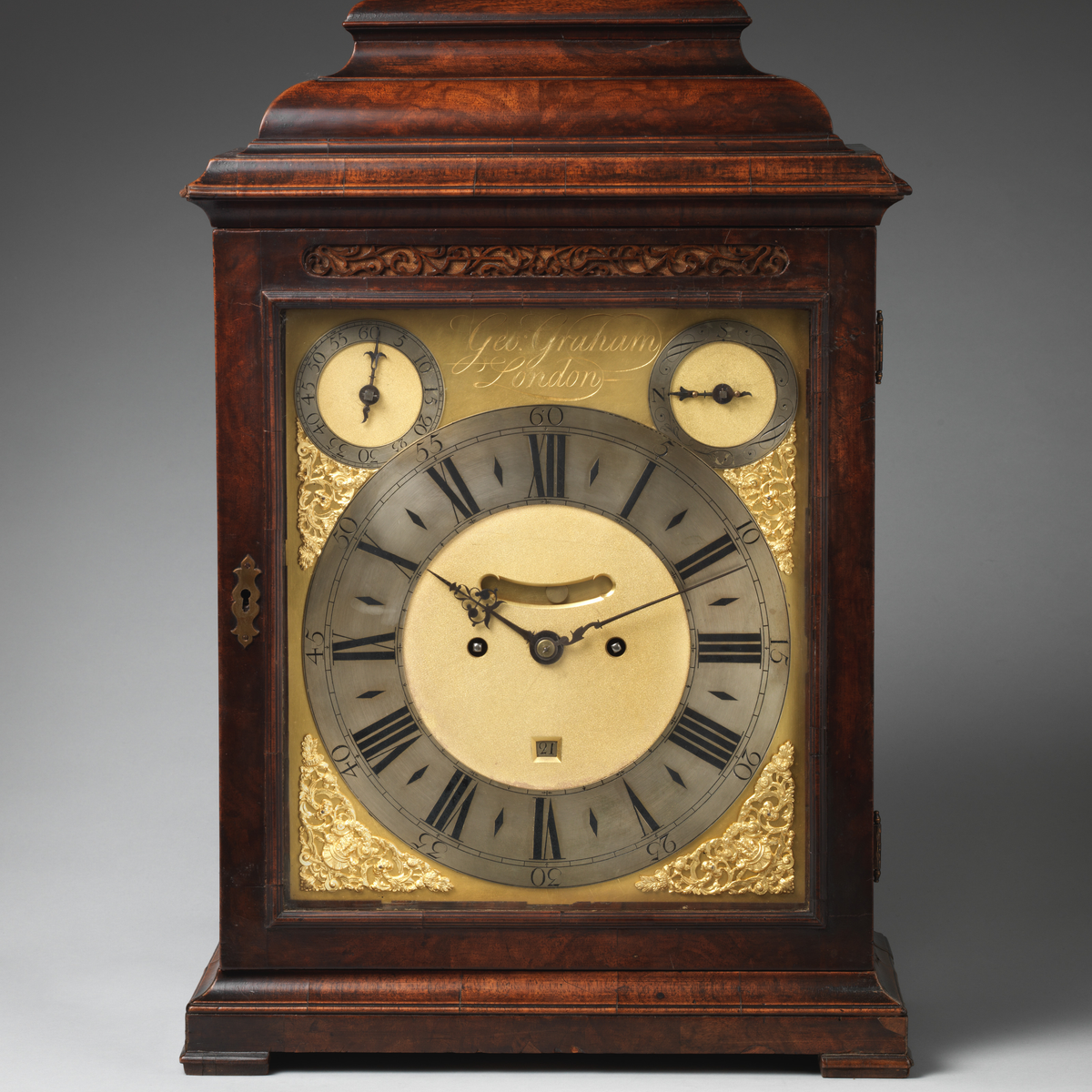George Graham, born in 1673 in the North Yorkshire village of Kirklington, England, is remembered for his scientific advancement of horology, and as a name revived in the 1990s, alongside that of other eighteenth-century English watchmakers, for a brand of contemporary wristwatches. Both professionally and personally, the life of George Graham is indissociable from that of Thomas Tompion, his mentor and friend who was the first to produce watches in numbered series. Having served a seven-year apprenticeship in London, Graham was hired by Tompion, who was quick to recognise the quality of his work. The young man joined Tompion’s company in 1695 and became his business partner in 1711. When Tompion died in 1713 he named Graham, now married to one of his nieces, as his successor. George Graham drew considerable benefit from Tompion’s friendship and trust in a city that was home to many ingenious makers. He was a great inventor and his position at the head of a prosperous business gave him the freedom to experiment his ideas.
One such innovation, presented in 1715, was the deadbeat or Graham escapement for clocks, which did away with recoil, followed ten years later by an improved version of Tompion’s cylinder escapement. Another of Graham’s inventions, introduced in 1726, was the mercurial pendulum which reduced the effects of temperature change on a clock’s rate. The precision of clocks equipped with Graham’s pendulum, combined with his deadbeat escapement, was so vastly improved that they became known as “regulators”. George Graham’s achievements were not limited to horology. As a maker of precision instruments, including a zenith sector, he contributed to advances in astronomy. In geophysics, his observation of the daily variations in Earth’s magnetic field would later be connected to auroras. George Graham was a scientific genius but also a generous and altruistic individual, known to all as “Honest” George Graham, who was more concerned with the advancement of science than with making money from his inventions. He offered advice and financial assistance to a young John Harrison for his work on a reliable marine chronometer – a strategic instrument in an age of seafaring expeditions, given its importance in calculating longitude at sea, but one that was still largely lacking in precision.
1715
Invention of the recoil-less deadbeat escapement or “Graham escapement”, still used in precision clocks.
1725
Perfected the cylinder escapement that Thomas Tompion had developed for a clock at the Greenwich Observatory. This escapement would be fitted in every Graham watch post-1726.
1726
Invention of the mercurial pendulum that reduced the effects of temperature variation. Its precision was unsurpassed until the discovery of invar by Charles-Édouard Guillaume in 1895.

